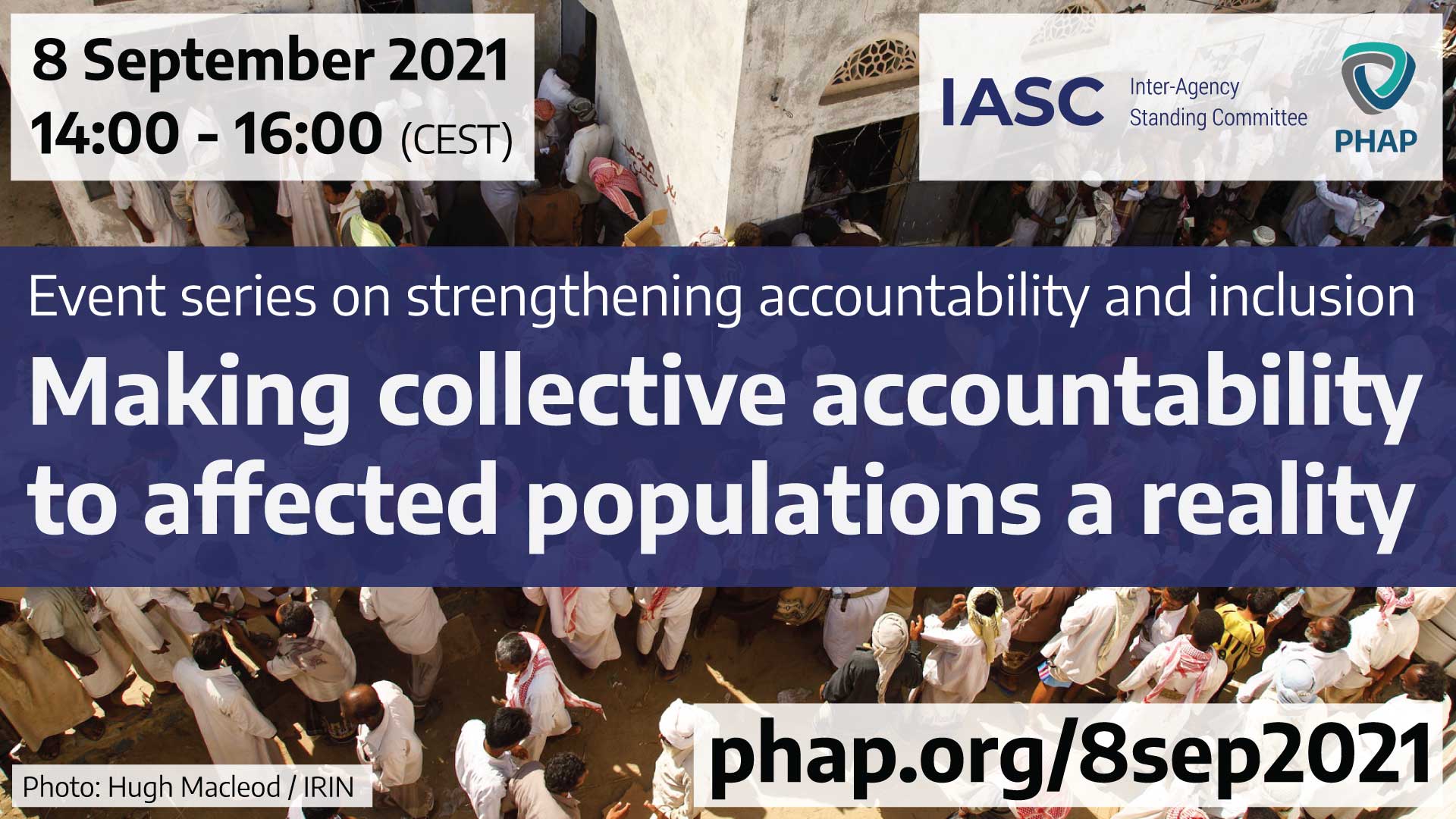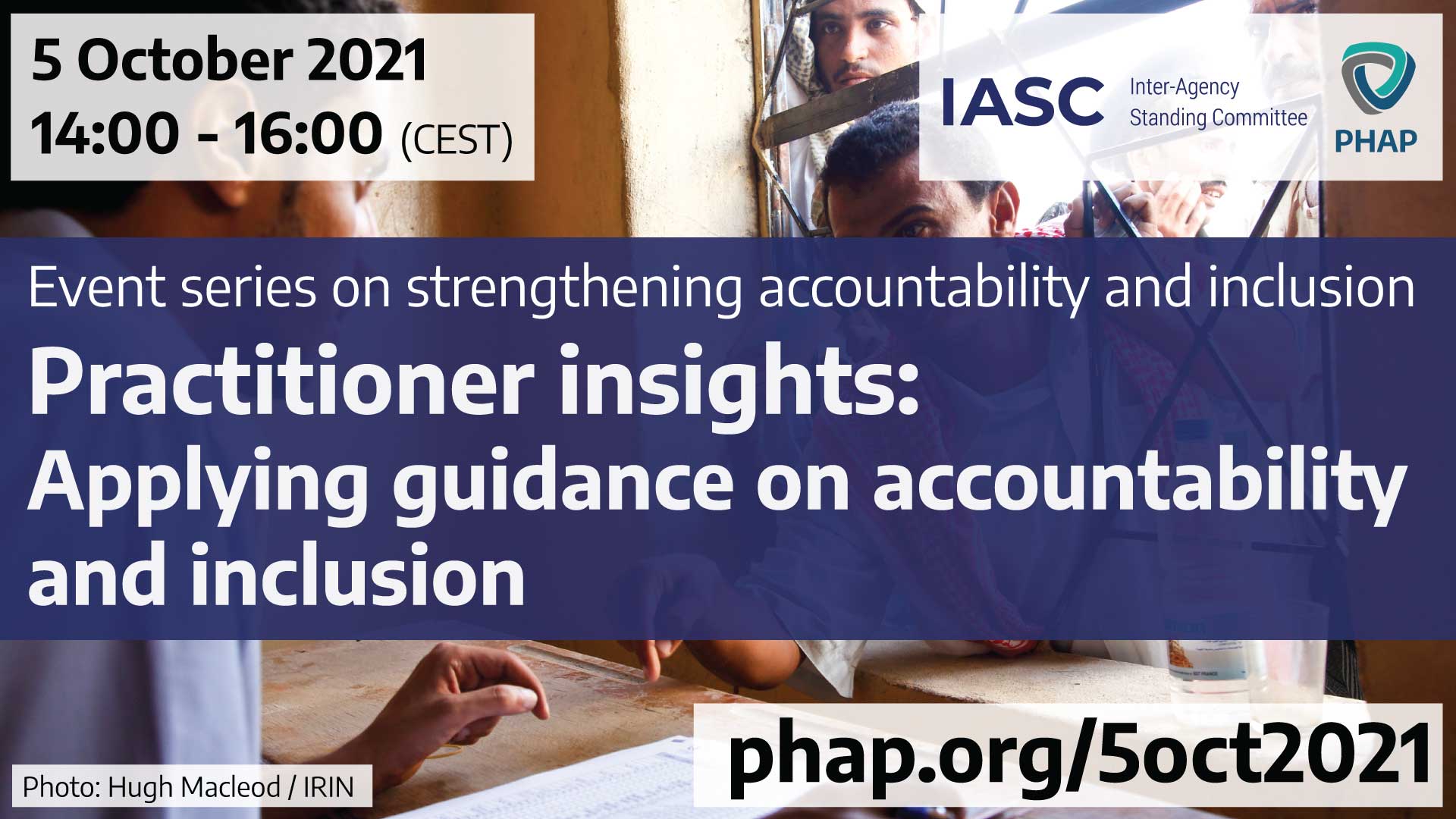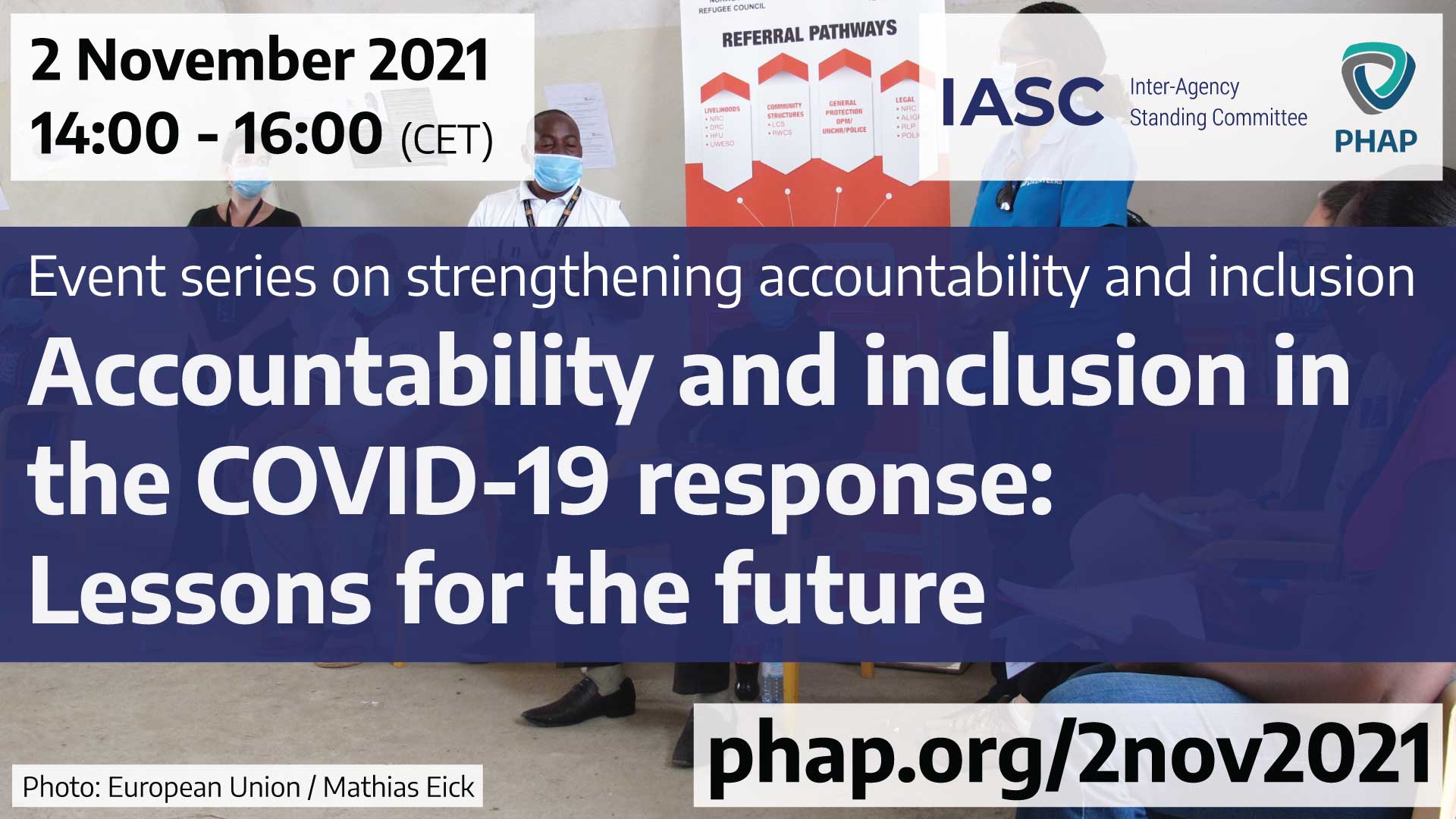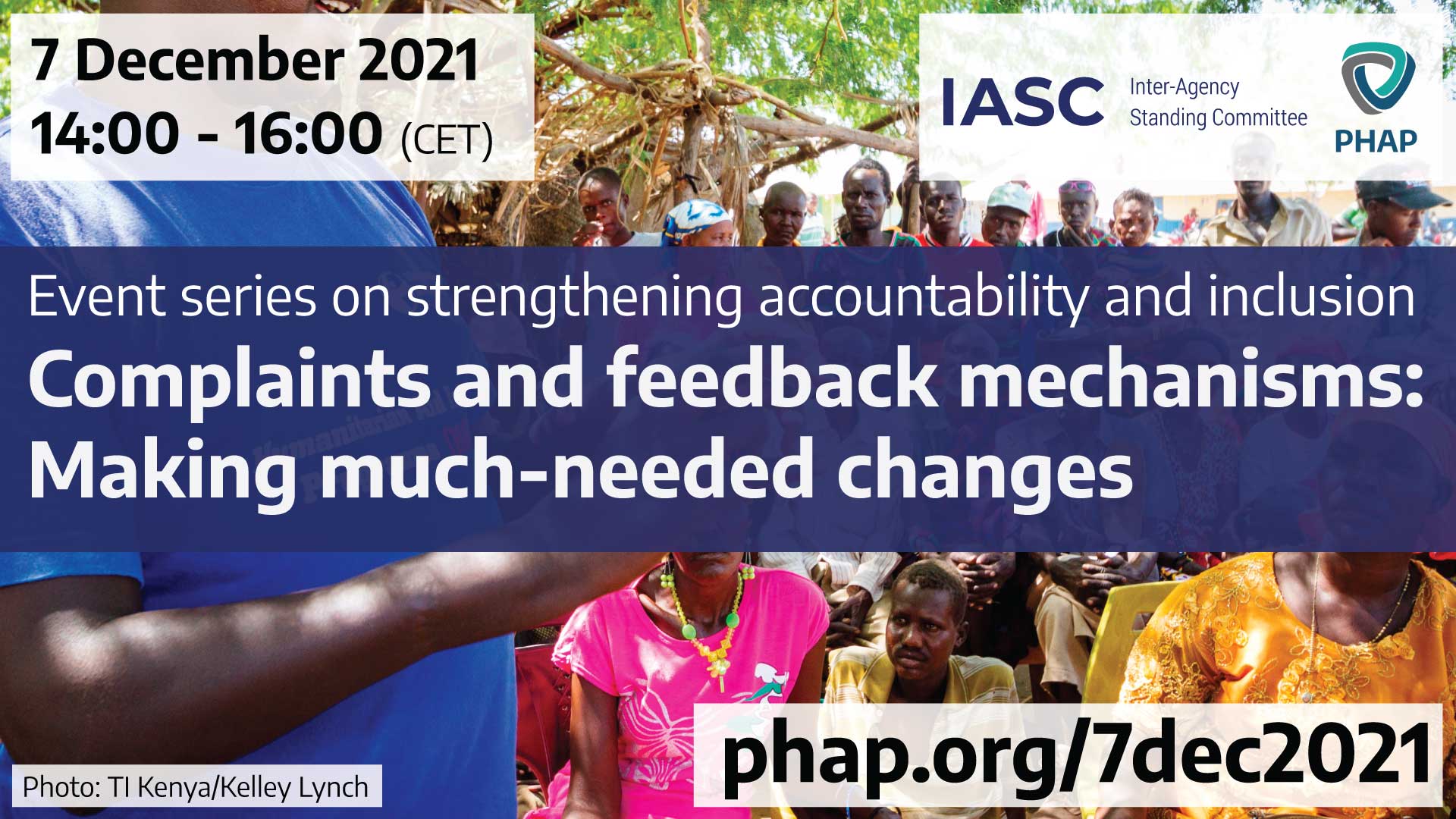
Progress has been made, but the humanitarian system – as a whole – is
not accountable to the communities it serves. To help practitioners
understand the current state of accountability to affected populations
(AAP) and how they can be part of strengthening accountability and
inclusion, PHAP is organizing a series of events together with the IASC
Results Group on Accountability & Inclusion. Join us for four
webinars touching on different aspects of accountability and inclusion,
bringing together global and local perspectives:
- Implementing collective accountability to affected populations
- Navigating guidance on accountability and inclusion
- AAP in the COVID-19 response
- Complaints and feedback mechanisms

Accountability to affected populations (AAP) is an essential part of
good humanitarian programming. But while some organizations may
integrate it well into their own operations, people do not live in silos
and their needs and priorities regularly cut across different programs
and as a result, they are often faced with confusing and overlapping
feedback and engagement systems. Collective approaches to AAP seek to
address this by focusing on the overall humanitarian response and
putting people rather than projects at the center.
Building on the operational research on Communication and Community
Engagement conducted by the Humanitarian Policy Group at ODI, as well as
its ongoing work around inclusion, the first webinar will consider some
of the lessons emerging from this research and explore how such
approaches can be encouraged, particularly by leadership at country
level.
Read more and register

Over the past years, organizations have developed a wide range of tools and guidance on how to approach accountability and inclusion, and several initiatives have emerged to provide support on implementing these approaches. But how do you find what would work best in your context among all this guidance? In this webinar, we will hear from practitioners who have gone through the process of selecting, adapting, and implementing tools in their programming. The webinar will also highlight the efforts made by the IASC Results Group on Accountability & Inclusion to make technical support more accessible.
Read more and register

The COVID-19 response, like any other public health emergency, has required a focus on communication around associated risks and the promotion of healthy behaviors. However, in humanitarian settings, accountability and inclusion principles have been central to shaping this response. This webinar will explore lessons around Risk Communication and Community Engagement (RCCE) from the COVID-19 response and decades of practical experiences around accountability in the humanitarian sector and how they can inform future health and non-health emergencies.
Read more and register

It has long been recognized that affected people must play an active role in decisions that affect their lives. Yet recent evaluations show that this is an area where the humanitarian sector is still lagging behind. There are few examples of systems that systematically capture the views and feedback from affected people, ensure they inform decision-making, and close the “feedback loop.” Many are not handling reports of sexual exploitation, abuse, and harassment appropriately, risking dangerous breaches of confidentiality. This webinar will be looking at some of the existing good practices, and at plans to scale them up and strengthen complaints and feedback mechanisms.
Read more and register